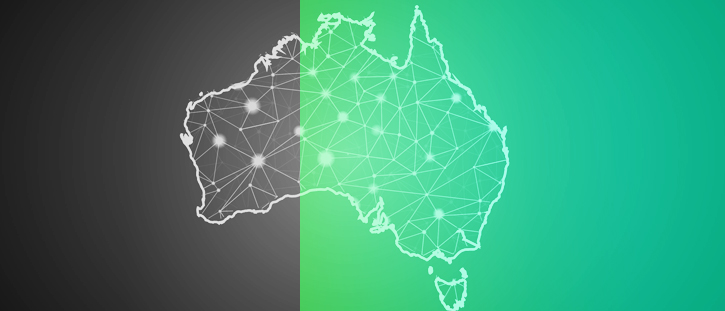

Online gambling regulations are constantly changing, and new trends and legal changes emerge every year. To successfully navigate the complex landscape of online gambling, it’s important for operators, affiliates and even players to stay up-to-date on the latest developments. In this section, we will examine the major changes and trends that have occurred in online gambling regulations around the world, offering insights and analyses for each continent.
Europe has been at the forefront in online gambling regulation for many years and has some of the strictest regulations. While the EU sets the overall framework, each country has its own separate regulations.
The EU Gambling Act of 2014 governs licensing and taxation. It also covers consumer protection and responsible gambling. Each member state can also have additional requirements or restrictions.

In 2024, online gambling revenue in Europe is expected to reach US$46.94 billion with a potential annual growth rate of 11%. Europe’s recently opened (though tightly regulated) iGaming markets such as Germany (2021), Spain (2021), Italy (2019) and Sweden (2019) will likely continue to see growth and vitality for some time. This is reasonable considering how new these markets are and how much potential growth exists going forward. However, Europe’s uncertain economic outlook may impact the otherwise healthy growth of iGaming in much of Europe.
Let’s look at some of the key markets in Europe.
In 2023, online gambling revenues reached £5.4 billion (US$6.9 billion), driven primarily by online casinos at £3.2 billion (US$4.1 billion) and sports betting at £1.9 billion (US$2.41 billion). Despite increased regulations, including a levy on operators to fund support for gambling addiction, the online gambling market in the U.K. is expected to grow at an annual rate of 6.7%.
The UK Gambling Commission (UKGC) regulates and issues licenses for U.K. gaming operators. (The Isle of Man has its own regulatory body: the Gambling Supervision Commission or GSC.) With a strong emphasis on responsible gambling, we can expect to see more regulations in the coming year aimed at protecting players in the U.K.
Online gambling revenue is expected to reach US$5.65 billion in Germany in 2024 with an annual growth rate of 5.35%. This revenue is currently divided fairly evenly between online casinos, lotteries and sports betting, which is rapidly growing in Germany.
Online gambling is still quite new in Germany. Online casino games became legal with the Interstate Treaty 2021. The new Joint Gambling Supervisory Authority (GGL) launched on Jan. 1, 2023 to provide centralized regulation over online gambling. Although it is responsible for issuing licenses to online gaming operators, it relies on the laws of each individual state to determine whether to issue the license. States have the power to decide whether to issue licenses to private operators at all or to pursue a state monopoly on online gambling.
Online gambling revenue is expected to reach US$4.12 billion in France in 2024 with an annual growth rate of 4.7%. France is one of the most heavily regulated countries in Europe for online gambling. In 2010, the French Gambling Act legalized online poker, sports betting and horse racing betting while prohibiting online casino games like roulette.
The Autorité Nationale des Jeux (ANJ) was created in 2019 to act as an independent regulatory body overseeing gambling in France with a key focus on protecting players. Unfortunately, the prohibition of online casino games has resulted in France having one of the largest black markets for online gambling in Europe.
In May 2023, Bill 1248 was introduced, which would legalize online casinos with existing state operators for a five-year period and then open up the market to other gaming operators. Proponents of this bill say it will protect French players from illegal online casinos and strengthen protective measures. If this bill passes, it will not create an immediate opportunity for online casino operators, but it could very well grow the online gaming market over the next five years.
This means legal online gaming companies could see an increase in players, and in five years when the market is opened to other online casino operators, there will be a flurry of gaming companies fighting to attract French players.
Online gambling revenue is expected to reach US$3.21 billion in Italy in 2024 with an annual growth rate of 5.85%. Sports betting and online casinos are the most popular types, with sports betting accounting for over half of Italy’s online gaming revenue.
Gambling has been a part of Italian culture for hundreds of years. In 2011, Italy fully legalized online gambling, including sports betting and online casinos. Gaming operators are licensed through the Autonomous Administration of the State Monopolies (AAMS), now part of the Customs and Monopolies Agency (ADM). As with the rest of Europe, a key focus is on protecting players through responsible gaming policies and resources funded by taxes on gaming operators.
Online gambling revenue is expected to reach US$1.97 billion in Spain in 2024 with an annual growth rate of 5.28%. Sports betting is especially popular, and spurred by tax cuts in 2018 on gaming operators, online gaming has continued to thrive.
The General Directorate for Gambling Regulation (DGOJ), now part of the Ministry of Social Rights, Consumer Affairs and Agenda 2030, is responsible for licensing online gaming operators at the federal level. The licensing process is complex, and in the past two years, regulations on gambling have become significantly more restrictive, especially with regard to advertising. For example, commercials for iGaming can only be broadcast between 1 a.m. and 5 a.m., and promotions are limited to customers who have been documentarily verified and on the gaming platform for 30 days.
Online gambling regulations in the U.S. are complex and constantly changing. Recently, the country has seen an increase in gambling legalization. State after state have opened up their iGaming from prohibition to regulation and taxation.
The legal framework for online gaming varies by state, creating a patchwork of regulations. Since each state has its own gambling laws, iGaming operators must verify a player’s location before they can be allowed to place a single bet.

Regardless of the complex landscape, the status of iGaming in the U.S. bodes well for various factors. As a technology leader since the dawn of the internet and the current global leader of balanced regulatory efforts using technology as its change agent, the U.S. outlook for growth in iGaming appears quite healthy. To put numbers to it, most analysts agree the U.S. led the charge for global iGaming growth, with a rate of roughly 20% at the low side of estimates and 25% at the high side in 2023. For 2024, the numbers predicted by many analysts estimate a growth rate of between 15% to 20%. These numbers are stratospherically higher than many other markets.
This kind of growth puts into perspective just how far ahead the U.S. is in this space, owing largely to being the technology and regulatory leader in it. Sports betting is a major driver, and businesses are pulling out all the stops to gain market share. For example, ESPN BET, which launched in November 2023, achieved significant brand recognition and captured as much as 11% of the market share within its first month. We expect to see fierce competition throughout 2024.
The matrix of patchy legalities in the U.S. is made more complex by the unique position of tribal gaming, which permits many Native American nations to operate relatively unrestricted gambling establishments — both online and off. To better understand the state of online gaming at U.S. tribal casinos, it is important to understand the evolution of tribal gambling.
The Indian Gaming Regulatory Act (IGRA) was passed in 1988 to promote tribal economic development, independence and strong tribal government. In 2024, the landscape of U.S. tribal Indian casino online gambling is set to undergo a major transformation, and tribes can expand their gambling operations by tapping into the lucrative and growing iGaming industry. This change in regulation follows upon the Bureau Of Indian Affairs (BIA) decision to regulate iGaming. The BIA’s new regulations for online tribal gaming include requirements for data security, consumer protection and responsible gaming practices. With these changes, the BIA aims to provide a framework for safe and regulated online gaming within tribal jurisdictions.
Canadian federal law has not fully legalized iGaming across the country and has instead left it up to individual provinces to decide and enact regulations themselves. This is a trend we’ve seen elsewhere, and one that has been met with a mixed reception among Canada’s provinces. So far, Ontario, Manitoba and Quebec have largely legalized iGaming in full, with relatively standard regulations similar to those in the U.S. Numerous other provinces, however, including Alberta and British Columbia, have opted not to legalize iGaming — at least for now.
Canada’s annual revenue from iGaming is steadily growing and is expected to reach US$4.29 billion in 2024. Online casinos are the biggest driver with 80% of iGaming revenue. We expect to see increased growth as more online casinos gain licensure and perhaps as more provinces open up to gambling.
Gambling regulations in Asia are, generally speaking, quite strict. Many countries have an outright ban on gambling or impose very high gambling regulations, due in no small part to differing attitudes about gambling in those countries. Many governments in Asia have adopted mixed stances, saying they’re worried about crime and addiction forming as a result of easy gambling. There are exceptions to this rule, and we see some emerging trends worth focusing on.

Just as China as a nation is highly unique, so too is its iGaming landscape. Despite an anti-gambling stance by the state and very strict regulations, the size of the Chinese iGaming market is estimated to reach a market volume of US$15.7 billion by 2028.
However, the regulatory framework is cloudy. Traditional gambling is largely outlawed, and instead of a market of casinos and sports betting, China has a marketplace of various mobile games and digital lottery tickets. This may sound bizarre owing to the size of the market, but it consists of gambling in the abstract — such as winning things within games that can then be converted to spendable money in various quasi-legal ways. 2023 was a year of crackdowns on this sector by the Chinese government with the express intent of curbing their growth under the premise that they spread social disease and addiction among the youth.
Despite the regulatory environment, 2024 may prove another growing year for iGaming in China. With a massive illegal gambling market in China, be on the lookout for a possible pivot by the government as it seeks ways to capitalize upon rather than outlaw online gaming.
South Korea allows only certain forms of gambling, including horse racing, cycling and lotteries. Casinos are prohibited, except for one single casino for foreigners. Offshore websites still offer online gambling and sports betting, but they are illegal — yet still accessible to many. Although there have been discussions about legalizing casino gambling to boost tourism, public opinion is divided, with many being vehemently against legalization. In many ways, South Korea can be viewed as analogous to China, where a huge gray market exists that is sizable and challenging to quantify.
The Philippines has numerous online gambling platforms catering to its residents and foreigners alike. The regulatory framework in place is moderately restrictive but not prohibitive, and there is plenty of room for operators to function. This seems to be working well, as they have seen stable growth in iGaming for some time and a wide variety of establishments operate there.
We’ve omitted numerous Asian nations from our regulatory trends analysis, such as Japan and Singapore, where iGaming is mostly illicit. This is unfortunate, because often these markets do have viable iGaming communities within them, but what dominates in these regions are black markets. Most black market iGaming consists of online accessible offshore or peer-to-peer gambling, which has the predictable net effect of draining GDP instead of boosting it. A good characterization of these markets might be to view them as analogous to the U.S. during prohibition. This created a black market, which in turn filled the void left by the above-board market being annihilated. The same can be said for many Asian markets who have entirely banned gambling — their users still gamble, though many do so on foreign websites using VPNs to hide their location.
Latin America is a unique and interesting marketplace that contains expanding iGaming markets along with very solid human demographics that should propel growth for some time. Numerous countries in South America have legalized and regulated iGaming and have worked hard and cooperatively between operators and legislatures to create stable markets poised for expansion. As a result of these factors, online gambling in Latin America is expected to quadruple in size and reach US$6.75 billion by 2027. Our outlook is that Latin America represents the single greatest area of potential growth for iGaming on the planet.

Brazil, also known as “the sleeping giant” because of its long-term dormancy within the iGaming sphere, took a major step in July 2023 by legalizing online gambling and sports betting. The new law amends 2018 sports betting regulations by increasing the tax on gross gambling revenues from 16% up to 18%. The increase in taxation was designed to boost the Ministry of Sports revenue share from 1% up to 3%. This shows a commitment to investing in the sports industry.
The new law also established the National Secretariat for Games and Betting, which will regulate and supervise the iGaming industry — a significant change in the legislation. Additionally, the law imposes strict restrictions on marketing and advertising, promoting responsible gambling. Companies that do not comply with the law may face penalties, fines and even license revocation.
Revenue in the online gambling market in Brazil is expected to reach US$1.97 billion in 2024 and to show an annual growth rate of 16.51% from 2024 to 2028. Although online casinos are creating the most revenue today, sports betting is expected to catch up in the next several years due to the huge popularity of sports in Brazil.
Mexico’s regulated iGaming industry launched in 2004 but remained small. New laws expanded online gambling in 2020 by allowing for the first licenses to be issued by private operators. Regulations are still being developed, and the impact of this expansion has yet to be determined. Mexico is the second largest iGaming market in all of Latin America, just behind Brazil. We may see expansive growth in this sector, not only fueled by iGaming growth, but indirectly by increased growth in other tangential sectors such as hardware gaming sales with connectivity to online casinos.
Colombia legalized online gambling and began licensing online casinos, poker, bingo and sportsbooks in 2017. The market is growing quickly, and local sports betting has been particularly popular. Online gambling revenue in Colombia is expected to reach US$1.287 billion in 2024, with US$889.1 million coming from sports betting. And with a projected annual growth rate of over 10%, growth in Colombia should continue into the indefinite future and shows no signs of slowing down.
Argentina legalized online gaming in 2019 and began issuing licenses to online casinos and sportsbooks in 2021. As a result, iGaming has taken off and brings in US$2.4 billion in annual revenues with tremendous potential for growth — in the first half of 2023, online gambling grew 273% year over year. As the second-largest economy in the region, Argentina offers operators a major new market despite economic uncertainty.
Costa Rica is unique in that it has a nearly entirely unregulated iGaming framework, which makes operating there relatively easy and free. However, this also makes quantifying its growth speculative at best. Costa Rica has been a kind of hub of iGaming for many years, but as markets begin to clamp down on money laundering and other forms of gambling fraud online, it may see its unique position become a precarious one.
Africa has a growing online gaming market that is expected to reach a revenue of US$1.85 billion in 2024. It has a wide range of gambling laws, and different countries have adopted different approaches.
Online gambling is strictly controlled in countries such as Mayotte and Reunion Island, and operators (both domestic and foreign) must obtain licenses and adhere to specific legal requirements. Other African countries such as the Comoros (Gambia), Guinea, Mauritius, Rwanda and Seychelles require local gambling businesses to obtain licenses while foreign operators are allowed to accept local players. Foreign operators can enter these markets, provided they comply with local regulations. Online gambling in many other African nations is not clearly regulated. Ethiopia, Angola, Benin, Burkina Faso, Egypt, Kenya, Morocco, Nigeria, South Sudan and South Sudan are all countries that fall under this category.

The African gambling industry has grown rapidly, with an estimated annual growth rate of 6.28%. International gambling companies have taken notice of this and are now looking to tap the African market’s potential. This growth is attributed to several factors, including increased access to mobile devices, growth of the internet and the middle class, and the adoption of favorable gambling regulatory frameworks in many African nations. South Africa has the largest gambling market on the continent, accounting for 40-50% or more of all gambling revenues in Africa. Nigeria is not far behind with its rapidly growing online gaming industry. Recently, other African countries, such as Kenya and Ghana, have seen a rise in betting platforms and online players.
The overall outlook for Africa is extremely positive, and growth is expected to exceed many analysts’ predictions as favorable economic conditions persist in numerous African nations.
In the last few years, many African nations have adopted more favorable regulatory frameworks. These frameworks are designed to promote a fair, transparent and legal gambling environment for both operators and players. In the African gambling market, licensing requirements are being introduced for online gambling operators. This ensures that operators adhere to certain standards and follow responsible gambling practices. License requirements include financial stability assessments and background checks.
A second trend in regulation is the creation of regulatory agencies to supervise the gambling industry in Africa. These authorities are responsible for enforcing the regulations, monitoring operators and protecting players. These authorities play an important role in ensuring fairness, preventing fraud and promoting responsible gaming practices.
Driven primarily by sports betting in Australia and New Zealand, the projected revenue for online gambling in Oceania is expected to reach US$11.39 billion in 2024 with an annual growth rate of 5.22%.

Australians have fully embraced online gambling. On average, each Australian gambler spends more than US$1,237 on online bets each year. The government allows online betting on sports and racing, as well as online lotteries. The online gambling market in Australia is estimated to reach a revenue of US$10.14 billion in 2024 with an annual growth rate of 5.12%.
The Interactive Gambling Act 2001 prohibits Australian gaming operators from running online casino games, but offshore operators can provide these games to Australian players. There’s no law against playing prohibited line games. Instead, the government has been focusing on gambling reforms to help prevent problem gambling, such as preventing the use of credit cards to place bets (the ban went into effect in June 2024), requiring ads use consistent messaging on the risk of gambling, and requiring training on responsible gambling for all staff involved in the online gambling industry.
Online gambling is restricted in New Zealand in much the same way as it is in Australia. Gaming operators based in New Zealand cannot offer online casino games like virtual poker or roulette, but New Zealand players can play these games with offshore operators. Lotto NZ and TAB New Zealand are the two domestic entities that provide legal online gambling in New Zealand.
The online gaming market in New Zealand is expected to reach US$1.25 billion in 2024 with an annual growth rate of 6.03%. Although much smaller than Australia’s online gambling market, New Zealand is expected to continue to grow steadily and, depending on what happens with future regulations, is a market to watch.
Oceania includes over two dozen island nations and provinces that collectively represent a relatively small portion of the iGaming market and have a patchwork of legal frameworks — if any at all in some cases. However, these nations may become instrumental in the growth of iGaming in all of Oceania, as they offer ideal circumstances for legal loopholes around restrictive laws in bigger countries like Australia. With the rise of cryptocurrencies and new innovative gaming platforms, nations such as Micronesia, Fiji and Papua New Guinea may play critical roles in hosting off-site servers for players in Oceania and beyond.
